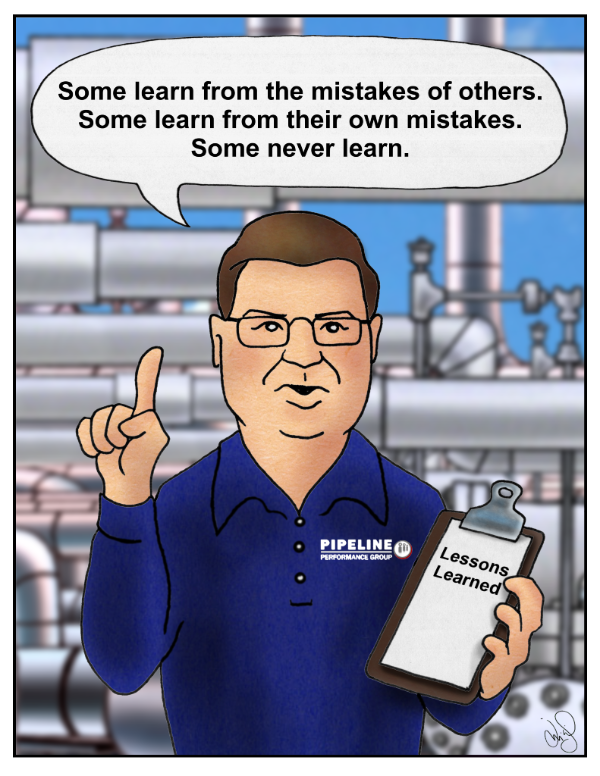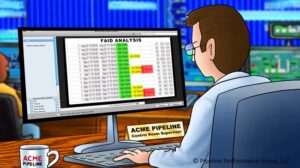Kindly Learn from Experience
One of my purposes with these articles is to use philosophy in ways that relate to Control Room Management without forcing the two to fit together. So far, I have linked philosophical themes to roles and responsibilities, change management, training, fatigue mitigation, and shift change. Now I want to look at operating experience, particularly what happens after incidents that involve a controller or the control room. Most companies have some type of incident analysis process that includes corrective actions.
One of the PHMSA CRM inspection questions (G2-1) contains this phrase: even though the control room may not have been at fault.
That seems to indicate that something must have been at fault even if it was not the control room or a controller. In my operating, managerial, and consulting experience I think most incident analyses find someone at fault. Usually, the fault is assigned to those on the front lines – controllers, operators, technicians, inspectors, or contractors. Even if companies seek to have a no blame culture, those who investigate incidents appear to find it easier to assign blame than to look at the deficiencies in processes or management systems. It is easier to “blame, shame, and train” than to correct the underlying causes of a human error.
I am not immune to similar thinking. Yesterday, we returned to Atlanta from Toronto on an international flight. We cleared customs in Atlanta and landed at a gate normally used for domestic flights. The Atlanta airport has two baggage claim areas – one for domestic and one for international. The Delta app said our bags would be at carousel 8, but then it changed and said they would be at carousel 7. The domestic baggage claim has nine carousels, and the international baggage claim has one that is outside the customs area. It is number 7. We went to the domestic baggage claim and our bags were at the international baggage claim. Most of the passengers on the flight went to the international baggage claim. Those of us who made the mistake fussed and complained to any airline employee who got within earshot. The airline was at fault! Why didn’t someone tell us? Who could we blame? It was a different experience than usual, and I needed to learn a lesson from my slip up and take responsibility for not asking questions before or when we landed. Blame myself!
Pipeliners and I can learn from our experiences by incorporating something Marcus Aurelius included in his Meditations:
If someone is slipping up, kindly correct them and point out what they missed. But if you cannot, blame yourself – or no one.
Yesterday, it was a minor inconvenience to take the shuttle to the international terminal and retrieve my bag. In a pipeline company, learning lessons from incidents that involve controllers or the control room (spills, leaks, accidental releases of gases, human error) can have many positive effects. The main effect is that people throughout the organization might be able to avoid similar incidents in the future. Does your company have a lessons learned program? Is it based on rational corrective actions to address what is missed or on blaming the people on the front lines? If it is the latter, look in the organizational mirror and fix the basic causes. You might be the one to blame or no one might deserve blame.
CRM and Philosophy | Charles Alday © 2018 Please Distribute to Others.




